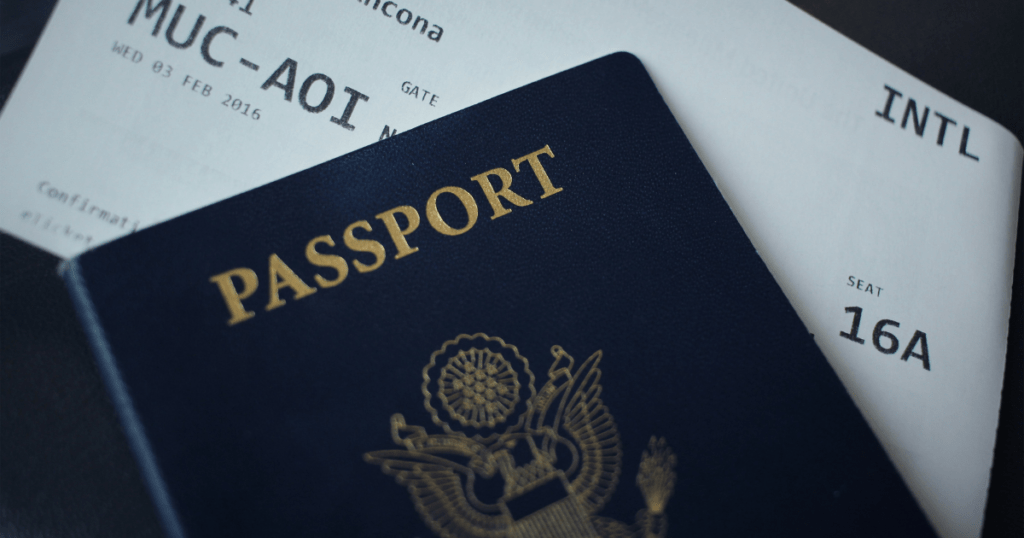Traveling can be an incredible adventure—exploring new cultures, cuisines, and landscapes while creating lifelong memories. However, unforeseen events like flight terminations, medical tragedies, or lost bags can quickly turn your dream holiday interested in a nightmare. This is somewhere travel insurance turn into a savior.
Travel insurance, and why is it so important? In this in-depth guide, we’ll collapse everything you want to identify about travel insurance: its benefits, types, coverage details, tips for choosing the right plan, and common misconceptions.
Travel insurance remains a policy planned to defend travelers from unexpected events that can happen before or through their trip. It turns as a safeguard, covering costs related to:
- Medical disasters
- Trip terminations and delays
- Misplaced, stolen, or damaged luggage
- Accidental death or dismemberment
- Natural disasters or unforeseen political events
Essentially, travel insurance delivers calmness, ensuring that financial and logistical disruptions don’t ruin your trip.

Table of Contents
Travel Insurance Important
Travel insurance remains not just an optional add-on—it’s often a necessity. Here’s why:
A. Financial Protection
Unexpected events like given up for lost flights, medical tragedies, or stolen belongings can consequence in important expenses. Travel insurance ensures you aren’t left covering these costs out of pocket.
B. Medical Coverage Abroad
Most health insurance policies don’t provide reporting external your home state. Travel insurance confirms that you receive proper medical care during your trip, without breaking the bank.
C. Fortification In contrast to Trip Disruptions
If your tour is canceled or censored petite because of reasons like illness or unexpected conditions, travel insurance reimburses you for the non-refundable expenses.
D. Calmness
Significant you’re covered in emergencies allows you to relax and enjoy your trip without worry.
Kinds of Travel Insurance Reporting
Not entire travel insurance plans are the same. Considerate the kinds of coverage available will help you choose a plan that sees your needs. Here are the most common kinds of travel insurance:
A. Trip Termination and Disruption Insurance
This type of attention returns you for non-refundable costs if you want toward call off or expurgated your trip quick because of:
- Disease or damage (yours or a family member’s)
- Natural disasters
- Unexpected work commitments
- Other covered emergencies
Example: If you’ve booked a $3,000 vacation and need to cancel last minute due to a family emergency, this policy ensures you won’t lose the entire amount.
B. Medical and Health Coverage
Medical emergencies can be costly, especially in countries with expensive healthcare systems. Medical travel insurance covers:
- Doctor drops in on and hospital visits
- Emergency surgeries
- Medical evacuations
- Prescription medications
Tip: Always check whether pre-existing conditions are covered under your plan.
C. Baggage Loss, Theft, or Delay Insurance
This reporting pays you for gone, taken, or late luggage, ensuring you have funds to change indispensable items like clothing, toiletries, and electronics.
Example: If your luggage is late for above 24 hours, your policy might cover expenses to buy clothes and essentials.
D. Emergency Evacuation and Repatriation Insurance
If you’re injured in a remote area and need to be airlifted to the bordering medical ability, emergency evacuation coverage pays for the transportation. Repatriation insurance refuges the price of returning your remains in the unsuccessful occasion of death during your travels.
E. (AD&D)
This provides financial compensation to your beneficiaries if you suffer a deadly accident or permanent disability during your trip.
F. Travel Delay Insurance
Covers expenditures for example meals, hotel sojourns, and conveyance if your tour is late because of circumstances like bad weather, strikes, or mechanical issues.
Travel Insurance Typically Exclude
While travel insurance suggests complete protection, it doesn’t cover everything. Here are some common omissions:
- Pre-existing medical circumstances (unless specified in your policy)
- High-risk actions like dangerous sports (e.g., skydiving, bungee jumping)
- Alcohol- or drug-related incidents
- Travel to high-risk destinations (e.g., war zones)
- Unattended baggage or valuables
Always speak the well print of your plan to understand what’s excluded.
Travel Insurance Cost
The worth of travel insurance hangs on several factors, including:
- Trip Cost: The more expensive your tour, the advanced the premium.
- Destination: Traveling to areas with expensive healthcare will increase costs.
- Period of Trip: Extensive trips have a tendency to rate more.
- Age of Traveler: Older travelers often pay advanced payments because of enlarged health dangers.
- Attention Type: Comprehensive plans cost more than basic ones.
Average Cost: Travel insurance typically ranges between 4%–10% of the entire trip price. For example, for a $2,000 trip, insurance might cost $80–$200.
By what means to Select the Correct Travel Insurance Plan
Here’s a step-by-step guide to choosing the perfect travel insurance policy:
Step 1: Judge Your Needs
- Remain you traveling domestically or internationally?
- Do you need comprehensive coverage or just basic protection?
- Are you carrying expensive items like laptops or cameras?
Step 2: Compare Plans
Use comparison websites like Squaremouth, InsureMyTrip, or TravelInsurance.com to compare multiple plans. Pay consideration to:
- Reporting limits (e.g., medical expenses, baggage reimbursement)
- Deductibles (the amount you expense of pocket earlier assurance kicks in)
- Exclusions (what’s not covered)
Step 3: Check Reviews and Ratings
Look for customer reviews and ratings to ensure the insurer has a good reputation for claims processing and customer service.
Step 4: Verify Policy Details
Always read the plan file to clarify:
- Cancellation terms
- Reporting for pre-existing circumstances
- Claims process and documentation requirements
Step 5: Buy Early
Purchasing travel insurance soon after booking your trip ensures that you’re covered for cancellations and other pre-trip risks.
Common Myths About Travel Insurance
Myth 1: My Credit Card Covers Everything
While some credit cards suggest travel assurance , the coverage is often limited. Always check the fine print to ensure it meets your needs.
Myth 2: Travel Insurance Is Too Expensive
Compared to potential losses like medical bills or canceled flights, travel assurance remains a small investment that can save you thousands.
Myth 3: I Don’t Need Insurance for Short Trips
Even a short trip can be disrupted by emergencies, accidents, or lost luggage. It’s always better to be safe than sorry.
Myth 4: Healthy People Don’t Want Travel Insurance
While you may be in good health, accidents and unforeseen events can occur to anybody.
By what means to Case a Travel Insurance Right
Filing a claim might seem daunting, but following these stages makes the development smoother:
- Document Everything: Keep receipts, medical reports, and proof of cancellations.
- Notify the Insurance Company Immediately: Most insurers require you to report incidents within an exact time period.
- Submit Required Documents: Provide all essential paperwork to care your right.
- Follow Up: Check on the progress of your claim to ensure its processed promptly.
Real-Life Situations Where Travel Insurance Saved the Day
Scenario 1: Medical Emergency in Thailand
A traveler fell ill with dengue fever during a trip to Thailand. Without insurance, the hospital bill would have exceeded $10,000. Travel assurance covered all medical costs, including repatriation to their home country.
Scenario 2: Flight Cancellations Due to Weather
A family vacation was late because of a snowstorm. Travel assurance reimbursed them for hotel stays, meals, and rebooking flights.
Scenario 3: Lost Baggage
A business traveler’s luggage was lost a route to a conference. Insurance covered the price of buying clothing and essentials.

Final Thoughts: Is Travel Insurance Worth It?
Absolutely! Whether you’re going on a stay escape or a month-long international trip, travel assurance remains an important portion of responsible travel planning. It not only saves you money in emergencies but also delivers calmness so you can fully enjoy your travels.
When selecting travel insurance, the period to comprehend your coverage needs, compare plans, and read the good print. A small investment in travel insurance can try a likely travel tragedy into a practicable awkwardness.
Happy and Safe Travels!
Now that you understand the position of travel assurance, you’re better equipped to make a knowledgeable choice and get on your next journey with confidence. Whether you’re exploring new cities, embarking on adventurous hikes, or relaxing at tropical beaches, travel insurance confirms you’re prepared for the unexpected.
Lesser-Known Aspects for Travel Insurance You Must Know Before Your Next Trip
Travel assurance remains a critical safety net, yet most travelers only scratch the surface of its benefits. While we often discuss the basics—trip terminations, lost luggage, and medical coverage—there are numerous lesser-known aspects for travel insurance that make a world of difference during your trip.
In this blog, we’ll explore hidden benefits, specialized policies, mistakes to avoid, and tips for make the most meant for your travel insurance reporting. If you’re someone who thinks travel insurance is limited to generic protection, this deep dive will change the way you look at it.
1. Lesser-Known Assistances of Travel Insurance
Beyond the obvious protections, travel assurance offers surprising perks that most travelers overlook. Let’s uncover these hidden benefits:
A. Coverage for Travel Documents
Losing your passport, visa, or other essential documents while abroad can be a frightening. Travel assurance not only helps cover the price of replacing these documents but may also assist with expediting the process. Some insurers even offer support to trace the near embassy or consulate.
Example: If you be unable to find your passport in Europe, travel insurance can refund you for the replacement cost, transportation to the embassy, and temporary accommodation.
B. Rental Car Protection
Many complete travel assurance tactics contain coverage for rental car damages. This benefit is often overlooked because people assume it’s covered by their credit card rent payment car assurance.
Why it’s helpful: If you rent a car abroad and it’s damaged in an accident or stolen, travel insurance can assist refuge repair or replacement costs.
Tip: Confirm that your policy includes “Collision Damage Waiver” (CDW) or similar rental car coverage.
C. Missed Connection Coverage
Missed a linking flight because of an airline delay? Travel assurance helps you recover costs related to rebooking your onward flight or accommodations until you catch the next obtainable flight.
Example: If bad weather causes you to miss your connecting flight to Bali, travel insurance will cover hotel costs and meals though you pause for another flight.
D. Coverage for Travel Companions
Travel insurance frequently refuges not just you but also your immediate travel companions. If your friend or family member becomes ill or experiences an emergency, your plan may repay you for any shared, non-refundable costs.
Tip: Check if your plan extends to “travel companions” or group policies to save money while staying covered.
E. Pet Travel Coverage
Traveling with a furry companion? About travel assurance plans deliver coverage designed for pets, including medical care, transportation, and quarantine expenses.
Why it matters: International pet travel often involves risks, such as pet injuries, lost documents, or flight cancellations. Pet-friendly travel insurance gives you calmness.
2. Specialized Travel Insurance Policies
Did you know that standard travel assurance isn’t at all times the best appropriate for every traveler? Specialized plans exist for unique travel needs, offering tailored coverage.
A. Adventure and Extreme Sports Travel Insurance
Standard travel assurance excludes high-risk activities like:
- Skydiving
- Scuba diving
- Skiing or snowboarding
- Rock climbing
Adventure travelers need a specialized policy that consist of treatment for medical emergencies, accidents, and equipment loss linked to these events.
Example: If you suffer a skiing injury in the Swiss Alps, a specialized travel insurance policy will cover mountain rescue costs and medical treatment.
B. Senior Citizen Travel Insurance
Older travelers often struggle to find comprehensive coverage because standard policies have age limits. Senior travel insurance provides tailored protection for those aged 60 and above, including reporting for pre-remaining medical circumstances.
Benefits for seniors:
- Advanced medical treatment boundaries
- Emergency evacuation assistance
- Trip termination because of health issues
C. Student Travel Insurance
Students studying or interning abroad need unique coverage for:
- Tuition reimbursements if they want to stop their course
- Medical emergencies abroad
- Lost study materials (e.g., laptops, books)
Many student policies also offer extended durations of coverage, ideal for long-term stays.
D. Business Travel Insurance
Business travelers often carry expensive equipment like laptops, tablets, and presentation materials. Business-specific travel assurance covers:
- Apparatus loss or impairment
- Reimbursement for canceled meetings
- Emergency business travel arrangements
Example: If your professional trip is interrupted, travel assurance may refuge the price of rescheduling flights and hotels.
E. Cruise Travel Insurance
Cruises have unique risks, for example lost port exits, onboard medical issues, or itinerary changes. Cruise-specific policies provide reporting for:
- Medical tragedies at sea
- Lost excursions
- Delays causing missed cruise embarkation
Tip: Aspect for a strategy that contains “cruise disruption” coverage.
3. Mistakes to Avoid When Buying Travel Insurance
Many travelers end up purchasing travel assurance that doesn’t meet their needs due to avoidable mistakes. Let’s look at common errors and how to avoid them:
A. Choosing the Cheapest Policy
While cost matters, the cheapest travel assurance policy often has limited coverage and high deductibles. Always compare coverage limits, exclusions, and benefits before deciding.
Solution: Use comparison tools like InsureMyTrip or WorldNomads to evaluate plans based on coverage and price.
B. Ignoring Pre-Existing Conditions
Most travel assurance policies exclude pre-existing medical conditions unless declared in advance. Failing to disclose these can result in denied claims.
Tip: Look for policies with a “Pre-Existing Condition Waiver” if you have known medical issues.
C. Not Reading the Fine Print
Travelers often assume their policy covers every possible risk. However, exclusions (like high-risk sports or alcohol-related incidents) can invalidate claims.
Solution: Carefully review the policy’s exclusions, coverage limits, and claim requirements.
D. Delaying Your Purchase
Buying travel insurance too close to your departure date may mean missing out on benefits like “Cancel for Any Reason” (CFAR) coverage.
Solution: Purchase travel assurance immediately after booking your trip.
E. Not Understanding Claim Procedures
Travelers often lose out on claims because they fail to follow proper procedures.
Solution: Know the claims process in advance, keep receipts, and report incidents promptly.
4. How to Maximize Your Travel Insurance Benefits
Maximizing your travel assurance benefits ensures you get the most value from your policy. Here’s how:
A. Document Everything
In case of emergencies, delays, or theft, gather all supporting documents:
- Medical reports and hospital bills
- Flight cancellation notices
- Receipts for emergency purchases
B. Combine Travel Insurance with Credit Card Perks
Some credit cards offer complimentary travel assurance . If you purchase a separate policy, you can combine benefits for extended coverage.
Tip: Use your credit card for booking flights and hotels to activate built-in insurance.

C. Know Your Travel Insurance Hotline
Many insurers provide 24/7 emergency assistance. Save the hotline number to access help for medical emergencies, lost passports, or flight disruptions.
D. Opt for “Cancel for Any Reason” (CFAR) Coverage
CFAR coverage allows you to cancel your trip for reasons not covered under standard policies (e.g., fear of traveling due to political unrest). While more expensive, it offers unmatched flexibility.
5. Is Annual Travel Insurance Worth It?
If you’re a frequent traveler, purchasing annual travel insurance can save you time and money compared to single-trip plans.
Advantages of Annual Travel Insurance
- Cost-Effective: Covers multiple trips under one policy.
- Convenient: No need to purchase insurance for each trip individually.
- Comprehensive Protection: Covers short and long vacations, business trips, and weekend getaways.
Example: If you take 5–6 trips a year, annual travel assurance is significantly cheaper than purchasing individual plans.
6. Debunking Misconceptions About Travel Insurance Claims
One reason people avoid travel insurance is the misconception that claims are difficult to process. Let’s address this:
Reality Check:
- Most claims are approved if proper documentation is provided.
- Delays in claim settlements often result from missing paperwork or incorrect information.
- Reputable insurers offer digital claims processing for faster resolutions.
Tip: Read customer reviews of travel assurance providers to gauge their claims settlement reputation.
Final Thoughts: Travel Insurance Beyond the Basics
Travel assurance is far more versatile than most travelers realize. From specialized plans to hidden benefits and maximizing your coverage, understanding the full spectrum of travel insurance ensures you’re prepared for any situation.
Whether you’re a student, adventurer, senior traveler, or business professional, there’s a tailored travel assurance policy to meet your needs. By avoiding common mistakes, exploring specialized options, and documenting everything, you can make travel insurance work for you.
Travel Insurance for Digital Nomads: Why It’s a Game-Changer
In today’s world, remote work and digital nomadism have redefined travel. Digital nomads explore the world while working online, but this adventurous lifestyle brings unique risks. Here’s why travel insurance is essential for digital nomads.
1. Coverage for Long-Term Travel
Unlike short trips, digital nomads may stay abroad for months or even years. Standard travel assurance policies have duration limits. However, long-term travel insurance is designed to cover extended stays abroad.
Why it’s important: A simple injury or illness during a long-term trip can drain your savings. Travel assurance ensures access to medical care, hospital stays, and even emergency evacuations.
2. Protection for Expensive Gear
Digital nomads carry valuable electronics like laptops, cameras, and smartphones, which are vital for their work. Losing or damaging these items can jeopardize their livelihood. Many travel insurance policies offer gear protection for theft, loss, or damage.
Example: If your laptop is stolen while working from a café in Bali, travel insurance can help replace it.
3. Medical Emergencies in Remote Locations
Traveling to off-the-beaten-path destinations can leave digital nomads far from quality healthcare. Travel assurance often includes emergency medical evacuation, ensuring you’re transported to a suitable hospital or back home.
4. Flexibility in Policy Renewal
Some travel assurance plans allow renewals online, perfect for nomads constantly on the move. Flexible coverage ensures protection without interrupting your travels.
Travel Insurance for Families: Ensuring Safety for All Ages
Traveling with family, especially young children or elderly relatives, requires extra precautions. Family trips are meant to be stress-free, and travel insurance plays a crucial role in keeping them that way.
1. Why Families Need Travel Insurance
Family travel involves more people, increasing the chance of unexpected disruptions. Whether it’s a canceled flight, a child’s sudden illness, or misplaced luggage, travel insurance offers financial protection for the whole family.
Example: If your child falls sick before your Disney trip, travel assurance can reimburse non-refundable expenses.
2. Coverage for Medical Emergencies
Children are more prone to injuries, and elderly family members are at higher health risks. Travel insurance ensures comprehensive medical coverage, including doctor visits, emergency care, and hospitalizations.
Tip: Look for plans with coverage for pre-existing conditions for senior travelers.
3. Family-Friendly Benefits
Many travel assurance policies offer discounts or group coverage for families, saving you money while providing coverage for:
- Lost baggage for all family members
- Trip cancellations or interruptions
- Emergency medical expenses
4. Peace of Mind for Parents
Knowing that your family is protected allows you to focus on creating happy memories, not worrying about worst-case scenarios. Travel assurance is a small price to pay for safety and peace of mind.
How Travel Insurance Can Save You During Natural Disasters
Natural disasters are unpredictable, and when they strike, they can disrupt even the most well-planned trips. Here’s how travel insurance becomes your ultimate safety net in such scenarios.
1. Trip Cancellation or Delays
If a natural disaster like a hurricane, earthquake, or snowstorm prevents you from starting or continuing your trip, travel assurance reimburses your non-refundable costs (flights, hotels, tours, etc.).
Example: A typhoon cancels your flight to Japan. Travel assurance covers rebooking fees and prepaid reservations.
2. Evacuation Coverage
If a natural disaster occurs during your trip, you may need emergency evacuation to a safer location or back home. Travel assurance policies often cover the cost of evacuation, including transportation and accommodations.
3. Loss or Damage of Belongings
Natural disasters can damage luggage or belongings. Travel assurance compensates you for any losses caused by such events.
Tip: Document the damage with photos to ensure a smoother claims process.
4. Assistance During Crisis
Most travel assurance providers offer 24/7 assistance services, helping you find the nearest safe zone, hospitals, or emergency transport during disasters.
Why it matters: When disaster strikes, quick action is critical, and travel assurance provides support to ensure your safety.
